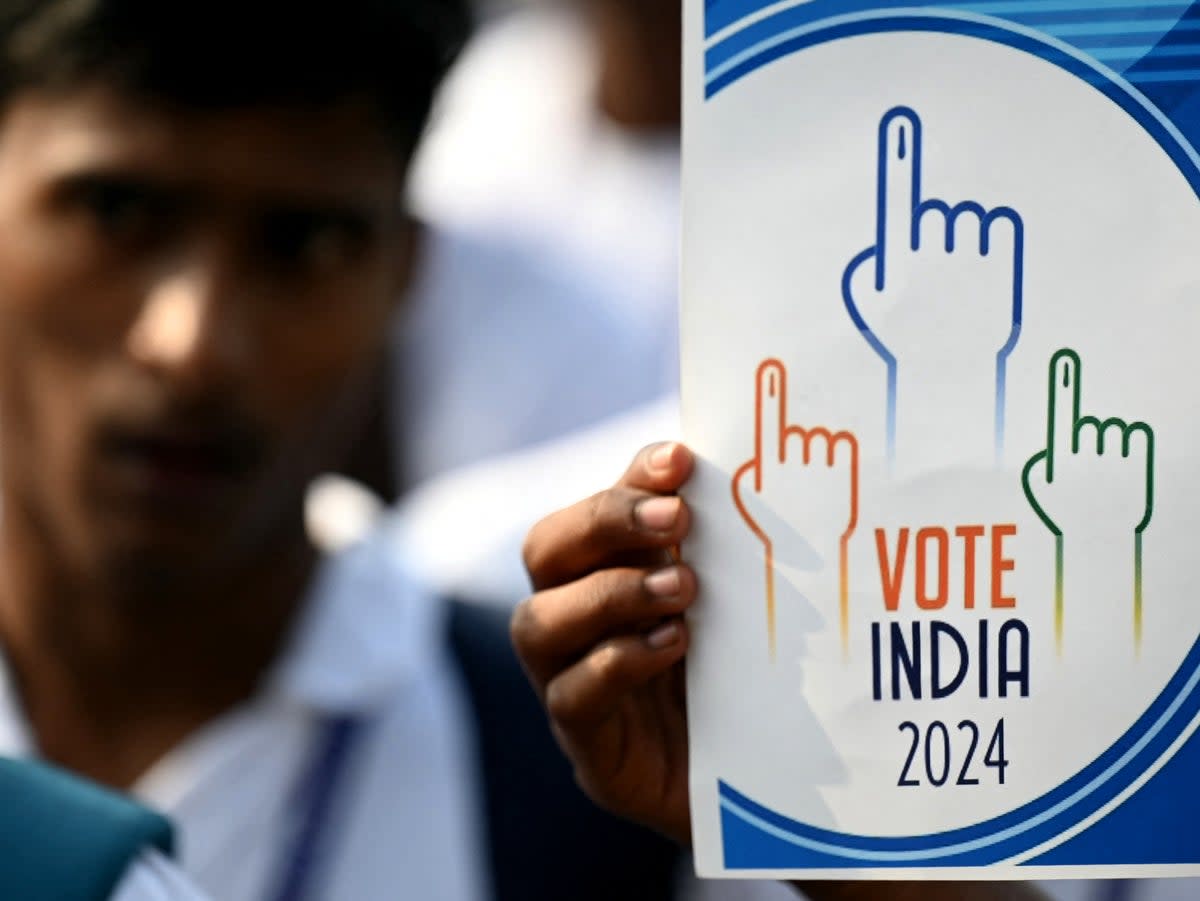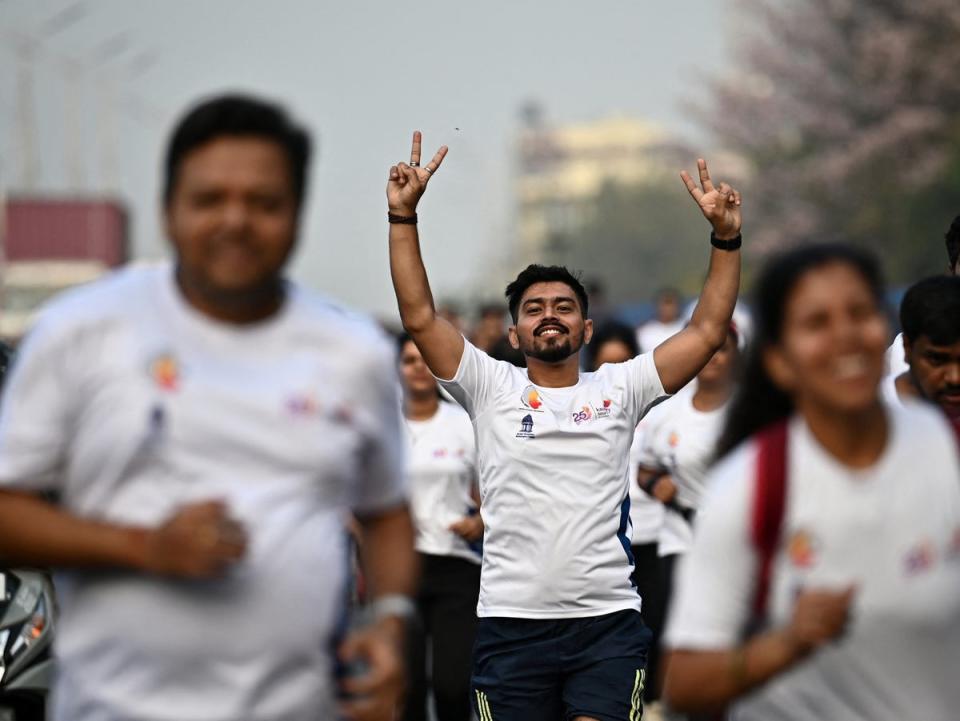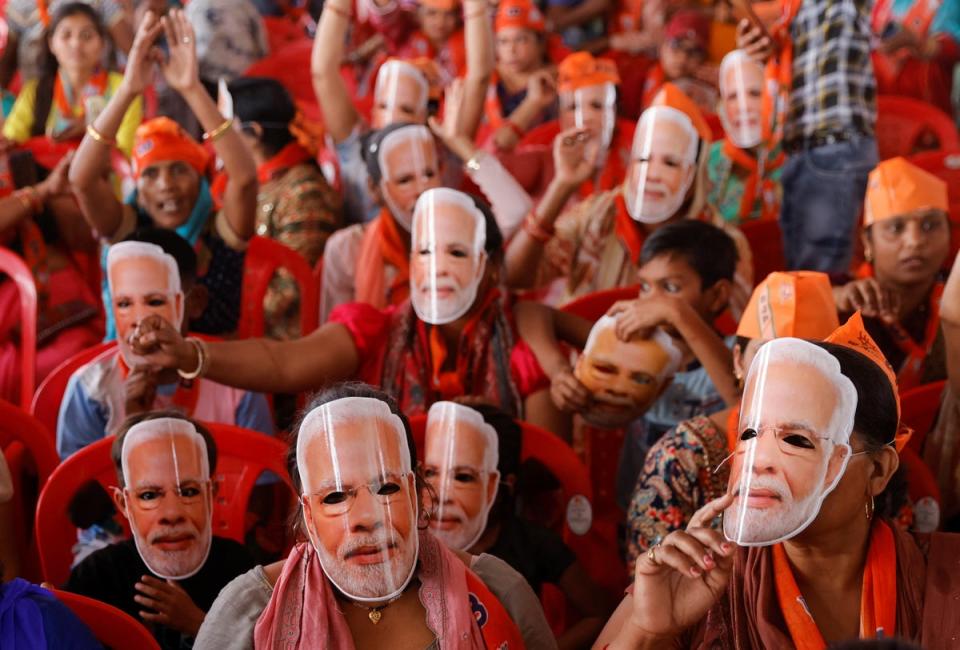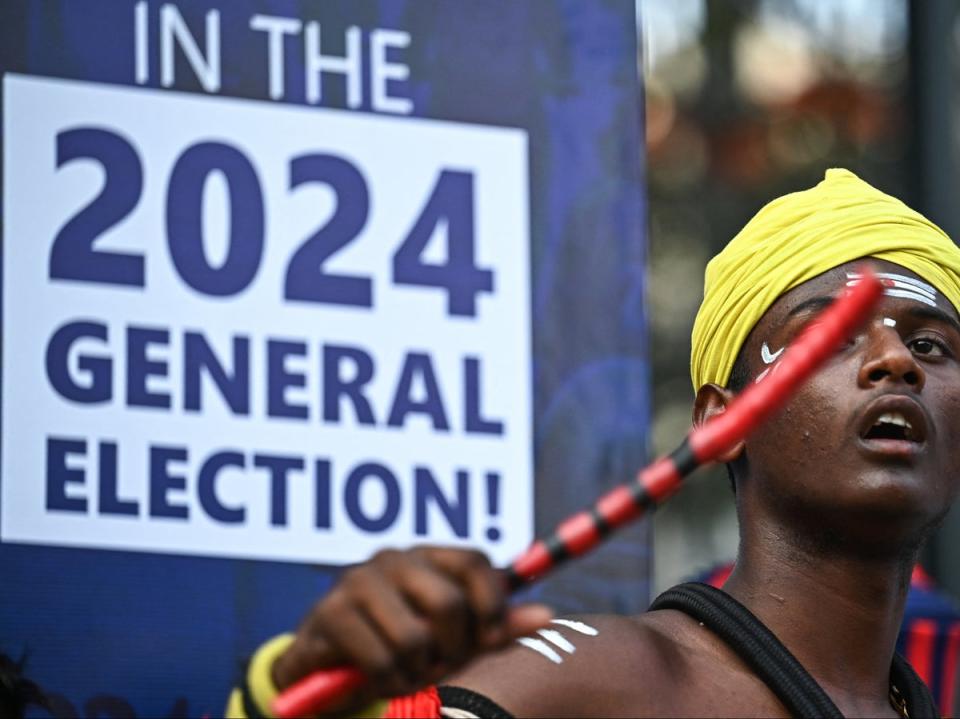How Modi’s BJP rewrote rules to erode Indian election commission’s independence

Narendra Modi‘s crackdown on civil liberties in India is gnawing away at one of the country’s last independent institutions – the Election Commission.
Once regarded as an aggressively fair umpire of India’s maddeningly complex and multitudinous elections, the agency is now seen by critics as favouring Modi’s ruling Bharatiya Janata Party (BJP).
The regression has come about because of policy and personnel changes that Modi’s government has affected over the years.
In a belated bid to ringfence the commission’s independence, the Supreme Court, ruling on a public interest petition in March last year, modified the process by which its three commissioners are appointed, including the chief.
Traditionally, they were appointed by India’s president on the prime minister’s recommendation. The court established a selection panel comprising the prime minister, the leader of the opposition, and the chief justice of India.
It was a temporary measure until parliament legislated a permanent solution. Parliament did follow up and enacted a law in December 2023.

But the new law only served to undermine the commission further. It swapped out the chief justice for a central minister nominated by the prime minister, effectively giving Modi’s government a free hand to make appointments.
“Earlier when people were appointed, there was a semblance of independence. But this government started appointing people who clearly were aligned or beholden to them,” professor Jagdeep S Chhokar, a founding member of the electoral watchdog Association for Democratic Reforms, tells The Independent.
The new selection committee met last month and appointed retired bureaucrats Gyanesh Kumar and Sukhbir Singh Sandhu as election commissioners, to complete the quorum with chief commissioner Rajiv Kumar, who has been in the job since 2022.
Their appointment was promptly challenged, but the Supreme Court declined to intervene. It also refused to stay the 2023 law under which the new selection panel was formed.
Two days later, on 16 March, the election commission announced the national elections, where Modi is seeking to win a rare third term. The elections will be conducted over seven phases starting from 19 April to 1 June, and the votes will be counted on 4 June.
Modi’s critics have alleged that Kumar and Sandhu are both aligned with the ruling BJP and will favour it in the impending elections.
According to Frontline magazine, they have both championed the BJP government’s policies and initiatives.

Kumar was instrumental in the reorganisation of Jammu and Kashmir after it was stripped of its residual autonomy within the Indian union and bifurcated by the Modi government in 2019, a move widely seen as driven by the BJP’s Hindu nationalist ideology. Sandhu was handpicked for Lokpal, a statutory body supposed to serve as a corruption watchdog.
In this context, Chhokar emphasises the need for election commissioners to be answerable to the constitution alone, without any interference from the ruling party.
“All elections are a mechanism through which democracy is operationalised. Free and fair election is an absolute necessity for democracy to exist. And for elections to be fair, those responsible for conducting elections should be free of any possible interference or influence by the government of the day,” he says.
Giving the ruling party a free hand to choose commissioners threatened free and fair elections, he added.

“If the prime minister or a senior minister were accused of violating the model code of conduct, the Election Commission would need to officially declare it a violation,” he explains.
That would not happen if the commission was stacked in favour of the ruling party.
The example of Ashok Lavasa is instructive.
Lavasa, an election commissioner poised to become the chief commissioner by April 2021, suddenly resigned in August 2020. He had held Modi to be in violation of the model code of conduct during the 2019 general elections, but was outvoted by the other two commissioners.
Lavasa asked for recording dissent notes on the commission’s rulings on election violations, but was outvoted again.
Shortly after his resignation, his mobile number appeared on a leaked list of potential targets for Pegasus spyware and his family was targeted by investigative agencies.
The Economic Times reported in 2019 that the Central Board of Direct Taxes (CBDT) initiated action against the Lavasa family members on alleged income tax evasions. IT notices were issued to Lavasa’s wife and son.
All consequences of his dissent, political observers allege.
Opposition lawmakers have also spoken out against the new law for appointing election commissioners when it was introduced in parliament.
Asaduddin Owaisi of the All India Majlis-e-Ittehadul Muslimeen reiterated that the law would bring into question the impartiality of the commission.
“If voters start feeling that it is not an impartial and non-partisan body, the legitimacy of our democracy comes into question,” he said, adding that the legislation was being enacted “to create an election commission which will work in the shadow of the prime minister, Shri Modi”.
The proposed law also drew criticism from outside the political establishment.
“In constitutional democracies, election watchdogs belong to a set of bodies known as fourth branch institutions, comprising bodies such as election commissions, information commissions, and so on. Their primary task is to effectively oversee and implement the infrastructure that is needed to make civil rights effective,” legal expert Gautam Bhatia writes in Hindustan Times. “In order to achieve this goal, these fourth branch institutions must be effectively independent of the executive, as one of their roles is to check executive overreach.”
Adhir Ranjan Chowdhury, who sat on the panel as the leader of opposition, disagreed with the choice of the new commissioners and submitted a dissent note. He said he hadn’t received detailed information on the candidates or a preliminary shortlist before the meeting in March.
“I gave a dissent note because I was given 212 names at midnight, but at the meeting, I only saw six names,” Chowdhury later told reporters. “How could I have knowledge about these people?”
“It is understood that the government can choose who it wants, but there was no adherence to any procedure even in that.”
Modi, in an interview with news agency ANI, claims his government improved the Election Commission, accusing rival Congress of appointing people close to the party as election commissioners.
“Earlier, the prime minister used to sign a file and form the Election Commission. And those who were close to their families became election commissioners. We have made improvements in the Election Commission. Today, if the Election Commission is formed, then the opposition is also in it,” he says.
India slipped to the 53rd position in the 2020 Democracy Index’s global ranking, according to The Economist Intelligence Unit (EIU). It said the “democratic backsliding by authorities and crackdowns on civil liberties” has led to a further decline in the country’s ranking.

 Yahoo News
Yahoo News 
